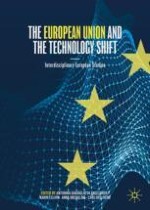2021 | OriginalPaper | Buchkapitel
4. AI in the EU: Ethical Guidelines as a Governance Tool
verfasst von : Stefan Larsson
Erschienen in: The European Union and the Technology Shift
Aktivieren Sie unsere intelligente Suche, um passende Fachinhalte oder Patente zu finden.
Wählen Sie Textabschnitte aus um mit Künstlicher Intelligenz passenden Patente zu finden. powered by
Markieren Sie Textabschnitte, um KI-gestützt weitere passende Inhalte zu finden. powered by
